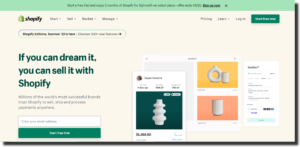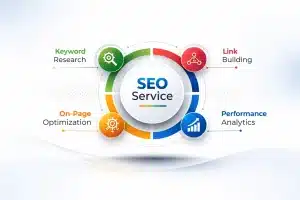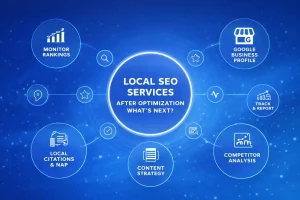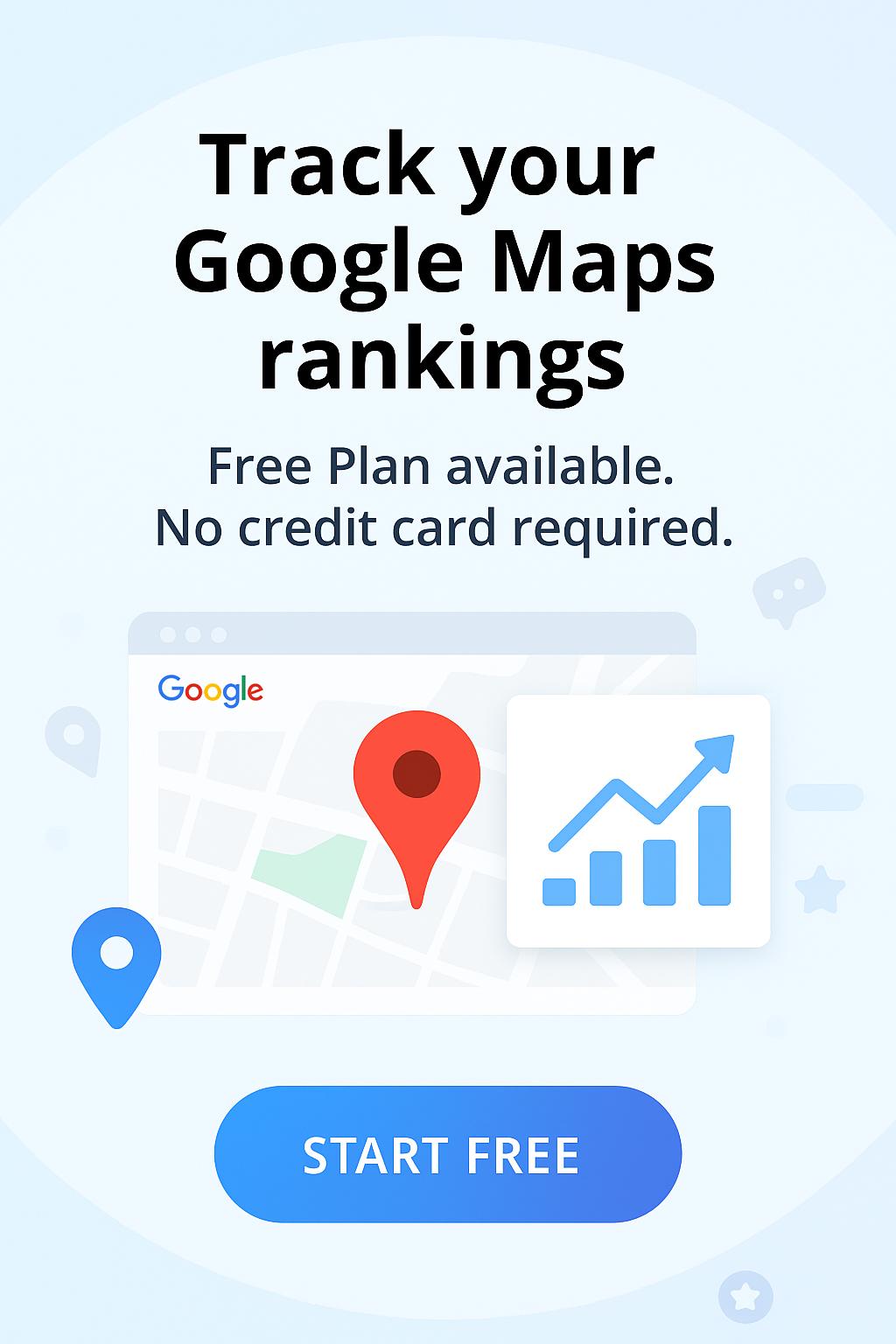Online shopping is the new norm; the recent pandemic has increased the trend of online shopping, which means e-commerce businesses are booming. This is great news for online companies, as now they can take their businesses to new heights with the right tool.
However, the problem arises when you are looking for the right eCommerce apps for your business. With a number of options available, picking the best eCommerce apps is not child’s play.
It would not be an exaggeration to say that choosing eCommerce apps is similar to looking for the right car! Hence here we bring you the 6 top eCommerce Apps list to choose from.
Before we look into the best eCommerce apps, first, let's understand what an e-commerce app is and how it works. So let's get started!
What is an eCommerce app?
Ecommerce apps are software that allows users to browse through the application and purchase from online stores. They are also known as mobile commerce apps. These applications bring various benefits for both the business and the customer.
The brands can better engage with their customers in a personalized way, and the user can control their experience by shopping anywhere they want.
Various platforms like Shopify and BigCommerce have made the shopping experience easier for both the brand and the customers. Ecommerce app design makes purchasing goods and services easier over the internet, where money is purchased via protected transactions.
What is an example of e-commerce app?
Everyone has heard about Amazon, started by the infamous Jeff Bezos in 1994; it is one of the best examples of an e-commerce app. Amazon was initially created as a retailing platform; however, later, it expanded and became one of the largest e-commerce platforms around the globe.
Being one of the first American e-commerce businesses to sell online goods, it was initially considered to be an online book store. However, as it gained popularity Amazon expanded its market and now sells various products, including electronics, video games, apparel, health products, etc.
In 2020 alone, Amazon generated $386 billion in revenue, which made it the third largest company by revenue generation. According to the customers, the best features of Amazon are the review system and the option to rate the product out of five stars.
Top 6 eCommerce apps
Now that you know about eCommerce apps, let's move on to our main part, choosing the right e-commerce tool for your online business. We have listed the top eCommerce apps with their features and prices, making it easier for you to choose from.
1 - Shopify
2 - BigCommerce
3 - Squarespace
4 - Wix
5 - Zyro
6 - WooCommerce
1 - Shopify
Shopify is the platform that almost everyone has heard of, making it the most popular online store setup. Its user-friendly e-commerce app design and significant sale handling make it an ideal platform for both the business owner and the customer. No matter how small your business setup is, it will, without a doubt, get you a million in revenue.

Shopify is very easy to use and is the best platform for beginners. The users appreciate the app for its welcoming interface and practical design. It helps you quickly set up your store and guide you on every step of what has to be done. Moreover, it notifies you of the things that need your attention.
Shopify plus points
- 6,700 apps and plugins: Shopify is number one in the top eCommerce apps when it comes to app plugins. The user gets a range of tools that let them connect to the social media that suits their business the most. Moreover, more than 3000 apps are free.
- Link with social media channels: Starting Shopify's intuitive core platform lets you take your business where it is more valuable. With this feature, you can sell directly from various social media platforms like Walmart, Pinterest, eBay, and even TikTok. You can build ads according to your platform, and users can access your shop with only one swipe.
- Easy to scale: This Shopify feature is best for business owners who carry a lot of products and have to deal with transactions in multiple currencies. With Shopify, you can create multiple staff user accounts which support various currencies and locations. This makes it easy for the owner to keep track of their products in less time.
- Deep knowledge base: Shopify customer support service is available 24/7 and provides extensive resources that can help solve user issues.
Shopify drawbacks
- Free layouts are limited: Business owners looking for unique and fun themes might have to spend money on premium layouts. Shopify only offers users nine free themes for their stores. They let you customize the layout according to your brand but offer less freedom on e-commerce app designs.
- Plugin drives up cost: All online platforms depend on plugins in some ways, but unfortunately, Shopify is dependent on the plugins to make your online store work the way you want. Various plugins can drive up the monthly cost and slow down the site's performance.
- Fewer products variant: Shopify lets you list about 100 product variants; however, this setback is limited to Shopify and various other eCommerce apps.
Shopify pricing
Shopify offers three types of plans: Basic Plan, Shopify Essentials, and Advanced Plan.
The Basic Shopify Plan starts at $29 per month per year and offers all the tools you need to start selling. It lets you create two staff accounts and up to four inventory locations.
Shopify Essential plan is available for $79 per month per year and offers five staff accounts and five inventory locations.
The advanced Shopify plan is available for $299 per month per year and offers 15 staff accounts and eight inventory locations.
2 - BigCommerce
BigCommerce comes second on the top eCommerce apps list that hosts up to 52,000 stores. This e-commerce platform is continuously gaining popularity among online businesses because of its strong features and easy user interface. Big Commerce is the best e-commerce app for the big stores that are only selling online as it is equipped to promote omnichannel growth.

Even though BigCommerce is not as beginner-friendly as Shopify, with a bit of practice, users can efficiently operate their store and use tools that can help generate more traffic to their site and increase the conversion rate.
BigCommerce plus points
- Complex inventory management: BigCommerce allows up to 600 product variants, more than what Shopify offers. Although not all store this many listings, it is suitable for products in various colors and sizes. This increases options for the customers as they have more control over what they are looking for.
- No code necessary: With BigCommerce, you can easily optimize your site without the need for plugins or CSS knowledge. You can simply point and click to design, which lets you optimize your online store the way you want.
- Accessible channel Management: It is easy to keep track of the customers, products, and payments with BigCommerce. You can adjust the setting with your platforms, such as Facebook or Instagram, and manage your business easily from the BigCommerce account.
- Customer rating and reviews: this is a significant feature of BigCommerce as the customers can quickly leave reviews and ratings for a product. Moreover, it has more than 70- built-in customer discounts and coupons.
BigCommerce drawbacks
- Trap in the template: BigCommerce lets you grow your business quickly. However, if you want to optimize your template to make it more unique and interactive, you will have to know the developer-level skill or hire help, which makes it hard for you to escape the template or the feel of a box store.
- Complex design changes: Editing the site on BigCommerce site design is easy, but it does not offer you more tools for customization. You can not make it represent your brand values.
- Shipping plugins: Many eCommerce apps offer a built-in shipping label without you having to wait in lines at the post office. However, in BigCommerce, you will have to connect to another service to make shipping from your home.
BigCommerce pricing
BigCommerce offers four types of plans: Standard, Plus Pro, and Enterprise plan.
The standard plan is $30 per year, allowing you to set up your store and sell your products.
The plus plan is $80 per month per year and offers you various marketing tools.
The pro plan is for $300 per month per year, which allows you to scale your business with extensive features.
An enterprise plan is also available on demand.
3 - Squarespace
Squarespace is one of the best eCommerce apps for users that are into more style than other e-commerce platforms. It offers the customers a unique experience by letting them get personalized with the brand, which is essential for all businesses. Many users say that it is easy to design and maintain the site on Squarespace, making it the store that speaks for the brand.

Moreover, Squarespace offers ease of use which is a good application for beginners. The business owners can also tag their Squarespace products on social media applications like Instagram, Facebook, and Twitter which can help them bring in people from different platforms.
Squarespace plus points
- Ease in customization: With Squarespace, you can create a unique and professional online store that can represent the “face of your brand.” The users love this design interface feature as they have complete control over the customization. Moreover, it can let you switch the template of your liking without the need for you to start over.
- Less maintenance required: With Squarespace, you do not have to worry about constant updates or the need to install plugins. If you use the free template, then it automatically updates itself. With Squarespace, you only need to worry about plugins for a few features like email marketing analytics. Not having to manage the themes and downloading plugins is a time save that users appreciate.
- No limit to storage: Most eCommerce apps are limited by storage; however that is not the case with Squarespace, it allows unlimited storage, which means you can upload high-quality images and videos without you having to worry.
Squarespace drawbacks
- Templated design: Although users feel satisfied with the design interface of Squarespace and the way their online store looks, it still does not allow you to have complete design freedom. The Advanced plan users can make changes using codes; however, it is more complicated than other applications.
- Harder to scale: Scaling requires external IT expert help as handling various products, variants, and multiple inventory locations are more complicated than Shopify. Business owners that are successful with Squarespace usually do not have extensive products.
- Limited extensions: On Squarespace, there are only twenty-eight pre-built extensions available. This means you have less opportunity to increase the tracking and shipping on your store.
Squarespace pricing
Squarespace offers you four types of plans: Personal, Business, Basic Commerce, and Advanced Commerce.
The Basic plan is $16 per month; you can save about 30% with an annual payment. This plan allows you to have two contributors only.
The Business plan is $23 per month, and you can save about 30 with an annual payment%. This is the most popular plan among the users.
The basic Commerce plan is $27 per month, and the Advanced Commerce plan is $49 per month. With annual payment, you can save 25% on both.
4 - Wix
Wix is another one of the top eCommerce apps that s best for stores that carry an extensive inventory. This application allows its users unlimited items, and successful users have a simple product line that is easy to show on Wix.

You can avail of up to 122 free templates for your online store, which is a lot more than what other eCommerce apps offer. Wix is said to be the best application for small business owners as it is less complex and has an expansive inventory. Such businesses need a professional interface and are easy to evolve according to the brand's needs.
Wix plus points
- Easy setup for new users: Although every application mentioned in this eCommerce apps list is easy to use, Wix is on another level. It has more than a hundred templates that help the beginner get started. Moreover, it provides extensive guidance to the users.
- Free to form designs: On Wix, there is a feature that allows you to easily drag and drop page elements anywhere you want on the page. Moreover, the guidelines on the page help you easily create a layout on the page.
- Easy to edit: The new users love Wix because it is easy to edit and manage. You can easily change the look of the site and page content as your brand evolves.
- Extensive security: Mostly, e-commerce businesses depend on online payments; hence they both want their financial information to be protected. Wix delivers the user with this security.
Wix drawbacks
- Not built to scale: for small business owners Wix is a perfect application; however, for a business that needs to carry and ship extensive inventory then, it is not easy to handle as it supports few currencies and locations.
- Limited Plugins selections: Although Wix offers a number of good apps, it still lacks the social network partners available on other e-commerce platforms.
- Unclear price changes: users have complained that on Wix, it is hard to tell which feature is included in their plan and which was only available as a trial as the price of Wix is hard to predict.
Wix pricing
Wix offers 4 types of plans: VIP, Unlimited, Combo, and Connect Domain.
VIP plan is first priority support and is available for $24/month with 35 GB of storage.
The Unlimited plan is the most popular for $12/month and has 10 GB of storage.
Next is the Combo plan for $8/month with 3GB of storage.
The Connect Domain is the most basic plan for $4/month with 500 MB.
5 - Zyro
Zyro is another beginner-friendly platform on the eCommerce apps list that is easy to learn and affordable. It is specifically built for small business owners to limit the complexities of application use. The building of a store on Zyro is also easy, and you do not even need a web developer for it.

Zyro plus points
- Affordable prices: Zyro is the cheapest out of all the eCommerce apps. The basic plan is for less than $5, and the premium plan is less than $15.
- Ease of use: The drag and drop feature of Zyro makes the application easy for a user as it lets you optimize the page without needing external help.
- Fast speed of website: The customer does not like to shop from sites that take a long to load and are glitchy. For this reason, Zyro has developed a fast page load and almost zero downtime.
Zyro drawbacks
- Limited inventory: On the premium plan, Zyro limits the product to 2,500. And on lower plans, it is just limited to 100 products.
- Lean eCommerce features: On Zyro, you can support an essential shopping experience, but this application's merchandising and inventory options are limited compared to other sites.
- Modest integration numbers: On Zyro, you can connect it to applications like Google Analytics and eBay, but the numbers are limited compared to other applications.
Zyro pricing
Zyro offers two plans which are Website and Business.
The Website plan is for $3 per month, and the Business plan is for $4 per month.
A website plan is the best to create a professional portfolio and blog for your brand. It also helps you personalize your website the way you want according to your business. With the Business plan, you can instantly start selling your goods on an e-commerce app.
6 - WooCommerce
WooCommerce is one of the most popular eCommerce apps that is the best e-commerce plugin for WordPress. It was developed in 2011, and in 2015 WooCommerce joined forces with WordPress, which further increased the growth of WooCommerce. Using WordPress with Woocommerce means that the users with be able to have the support of an open source community.

As an open-source application, it offers unlimited customization to the users, and the integration provides excellent SEO for e-commerce platforms. Moreover, it is a flexible application, meaning the users can sell any kind of good on it.
WooCommerce plus points
- Trustable application: WooCommerce is built on WordPress, the software that is well respected and powers over 34% of the web. Moreover, it is audited daily by Sucuri, a leading industry in protecting security, making it a trustable application.
- The unlimited addition of products: It is an open-source application, which means you have full control of all the customization features and can add unlimited products to it.
- Sell anything on it: WooCommerce lets you sell any physical product; it even enables you to download any digital feature or make an appointment with a business.
- A modular system: Woocommerce is a lean application that allows you to add any option you want. As it is made with WordPress, you can keep the plugins and the features you are already accustomed to.
- The Automated Coupon: Automated Coupon is a versatile App that lets you create personalized coupon codes automatically and helps to engage with your customer and helps to convert your customers with more unique coupon codes to boost your conversion rate Woocommerce, sales and have the opportunity to recover your abandoned carts
WooCommerce drawbacks
- WordPress Specific: Although WooCommerce is a user-loved application, it is still a plugin, meaning you cannot use it without WordPress. Hence, it is hard for an established business which means they will have to reset their website.
- Expensive to use: Although WooCommerce is free to download, extensions are attached to it that require you to make payment which increases the running cost of the application. This might seem like hidden costs to the business owners, decreasing the trust in the application.
WooCommerce pricing
WooCommerce and WordPress are free-to-use applications; however, you need to pay to download plugins to optimize your site the way you want.
On average, users have to pay about $10/month for a basic site, and large-scale businesses need to pay about $200 to $1000 annually for a customizable website.
![Top 6 eCommerce Apps [Complete Review] 1 Person analyzing analytics on a laptop while researching eCommerce Apps for improving online store performance](https://wiremo.co/wp-content/uploads/2022/08/ecommerce-apps.webp)



